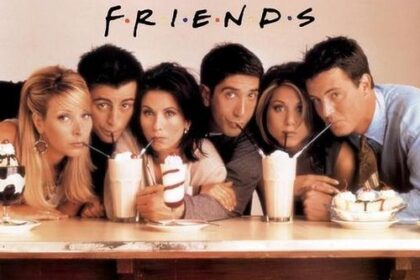Sucked into a bagel
I finally saw Everything Everywhere All At Once this past December, almost a year after its release. For nine months, I was able to dodge spoilers on Twitter and skip interviews with the stars on my favorite podcast (Las Culturistas, obvi) until finally it became unavoidable when my mom rented the Blu-ray over Christmas.
Everyone told me that this movie was for me. I am a queer, Chinese American woman, so I expected to have a crystallizing moment of catharsis while watching the film. I didn’t. Don’t get me wrong. Michelle Yeoh is my hero, and the film was interesting and funny and beautiful and deserves all the Academy Awards. But I didn’t fall in love with it… at first.
Then, a couple weeks later, I had a meltdown about my life and career, as I am want to do. I am a self-proclaimed environmentalist and have committed myself to solving the climate crisis. Even though my job is to deploy energy-saving building automation technology in the US, I feel useless.
I work in product marketing, which means my role is to define the strategy for how we will sell our technology and to create the tools, marketing collateral, processes, etc. needed to execute that strategy. I chose to work in this business because energy efficiency in commercial buildings is an important piece in the puzzle to decarbonize our society, but my personal influence on emissions reduction is fairly far removed. Sometimes I feel like an afternoon spent picking up trash by the side of the road would have a greater, more direct impact on the planet than the 40 hours I spend per week on product commercialization. There’s no way to definitively say, “Audrey’s many powerpoints and spreadsheets led to the avoidance of X tons of CO2.”
So there I was, slumped on the floor and tearfully saying, “Nothing I do matters,” when I recalled Jobu Tupaki’s voice:
I got bored one day, and I put everything on a bagel. Everything. All my hopes and dreams, my old report cards, every breed of dog, every last personal ad on craigslist. Sesame. Poppy seed. Salt. And it collapsed in on itself. Because, you see, when you really put everything on a bagel, it becomes this. The truth: Nothing matters. Feels nice doesn’t it? If nothing matters, then all the pain and guilt you feel for making nothing of your life goes away. Sucked into a bagel.
I realized then that I identified with Everything Everywhere All at Once not necessarily as a queer Asian American woman (I guess because even those of us in this particular niche have disparate experiences), but as a climate professional.
The size of the problem that is the climate crisis and the possibilities of everything I could be doing at any moment to stop it are overwhelming. I am so paralyzed by what there is to do and by what I have left undone that I let myself get sucked into an everything bagel of nihilism.
At the core of my internal conflict is this: I chose to work at a Fortune 500 company with over 100,000 employees that operates in over 100 countries because I want to be able to influence an organization that has the potential do some real, scalable good. At the same time, I also know that climate change is the result of the ruthless pursuit of unmitigated economic growth at the expense of people and the environment. Even clean energy technologies can be overproduced and overconsumed, so does it help or hurt the environment to try to sell as many of our devices as possible? Am I just slapping bandaids over the scars while continuing to rip open the skin? Am I just going in circles?
Googly eyes
During my latest climate/nihilism crisis (these happen often), I decided to go on a run while listening to one of my other favorite podcasts, Hot Buttons, a show about the future of fashion and culture on a changing planet. This episode featured Charles Conn, Board Chair of Patagonia, who shared how and why the company’s founder decided to “give the company away” so that all profits go toward saving the planet (https://www.patagonia.com/ownership/).
I have believed, perhaps naively, that it is possible to make money and to also benefit the environment; that’s the foundation for my choice to work at, and attempt to rise up in, a large corporation. However, with constant news about pollution, workers rights violations, & greenwashing, the existence of an actual socially responsible business feels more and more like an impossibility.
But as I listened to Conn, I felt like Joy being pulled out of the everything bagel by Evelyn.
Conn stated, “I’ve got a feeling that the best way to create long term value is to treat the communities that you live in with respect, to treat your workers with respect, and to give them a fair share of the benefits created by a company, and to treat the environment as if we have to live in it forever, because we do.” It felt like a line from my own personal diary, a wish that I had scrawled away in a journal and forgotten about because as a climate professional, I am so used to being skeptical that I write off my own hopes as naivité. I’ve become so jaded about our collective capacity to do good.
Even as a person whose entire job is literally to drive the profitable growth of my business, I do agree when Conn says, “All of us, including Patagonia, need to choose less growth. And we need to ask our customers to pick wisely. I think that’ll have to be the future if we want a planet that’s worth living on.” I know it sounds counter-intuitive for a product marketing manager to say that we need less growth, but hear me out: I am not in the business of selling products nobody needs. I want to find the customers who can really benefit from my solutions, and I believe my business should only flourish because we address people’s needs (chief among them being decarbonization) better than anyone else, not because we’ve saturated the market with detritus.
That is my vision for the future of our economy: Only the businesses that truly solve customers’ problems and can do it without digging humanity into a deeper hole should survive (See my related article Survival of the Sustainable). It will require business managers to have more creativity, courage, and clarity of vision than has been previously expected of them.
Patagonia is the first company to give away 100% of their profits to be used to fight climate change. The jury is still out on whether their specific approach will be a success for the planet, but intentions and outcomes aside, I am inspired by their actions because we have to experiment with new ways to do business. Our current economic system isn’t working. I believe there are business models — and also just models for living — that we haven’t tried, or even dreamt up, yet. The possibilities for the future are exciting and unlimited.






The struggle is real. I still feel that way even though I’ve left the corporate role with its fanatic, frantic drive for profit as measured by $$$. It always feels hypocritical to sell products to major O&G and Petrochemical companies that continue to maintain our dependence on fossil fuel but then “greenwash” themselves to appear to be environmental, diversity, inclusive, and sustainability leaders. Even their entire approach to measuring these goals is centered around profitability.
The small company I currently work for doesn’t even care or try. At least they’re honest about it.
Bottom line– I have my exit strategy to retire soon and then be a much better citizen of the world and support those fighting the good fight on the bigger stage while continuing to do my small part locally. Not to be cynical, but you’re probably going to have that crisis of conscience soon as well. You have a larger timeframe to find work (notice I didn’t say career) that is either actively engaged or at least a strong ally. (At take some comfort in those friends and associates who are)